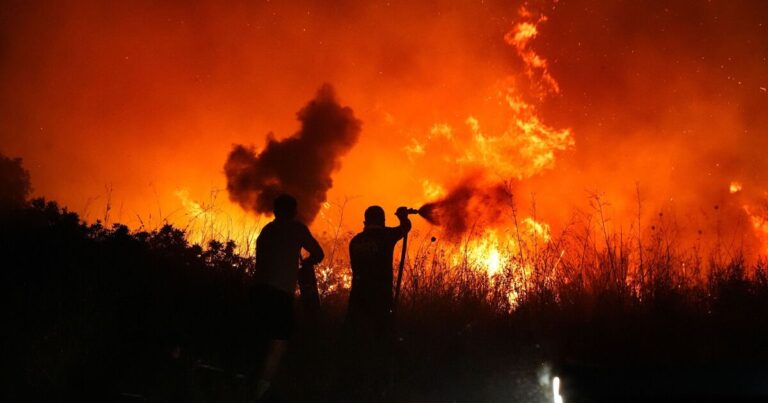An urgent warning has been issued to Britons sunbathing in popular holiday destinations close to wildfire-hit tourist sites.
Raging fires raged across southeast Turkey last week, with Britons being warned they “may have to leave the area”.
Pictures show a serious fire with plumes of smoke rising above the forest.
Helicopters were used to drop water on wildfires in Diyarbakir and Mardi provinces today, and two hotels and several houses were evacuated.
Air and ground intervention is underway to fight a forest fire in the Selçuk district of Izmir, Turkey. Air-to-air firefighting operations, which were suspended after sunset yesterday evening, resumed at dawn today (Sunday, June 30) with helicopters and planes.
Three night vision helicopters worked through the night to put out the blaze, which began on Thursday and raged through Friday, killing hundreds of animals.
And now the Ministry of Foreign Affairs has stepped in, updating its advice on dealing with extreme temperatures in the region as authorities battle severe fires.
The statement read: “Wildfires are dangerous and unpredictable. They can start easily and spread quickly, especially during hot periods. Starting a bushfire, even if unintentional, can be a criminal offence.”
“Please make sure to extinguish any cigarettes, do not leave empty bottles lying around and follow local rules and signs when having a barbecue. Barbecues are often only permitted in designated areas on concrete bases and you should always extinguish any barbecues before leaving.”
He added that Britons could face heavy fines and even prison time if they light any kind of fire or throw away cigarettes in danger areas such as forests.
According to the European Forest Fire Information System (EFFIS), 74 wildfires have burned in Turkey this year, destroying about 31,900 acres of land.
Temperatures in many parts of Turkey have topped 40 degrees Celsius (104 Fahrenheit) over the past week, drying out forests and scrubland. The cause of the latest fires is under investigation.
Interior Minister Ali Yerlikaya blamed the attack on “residue burning”, the deliberate setting of fire to crop residues.


